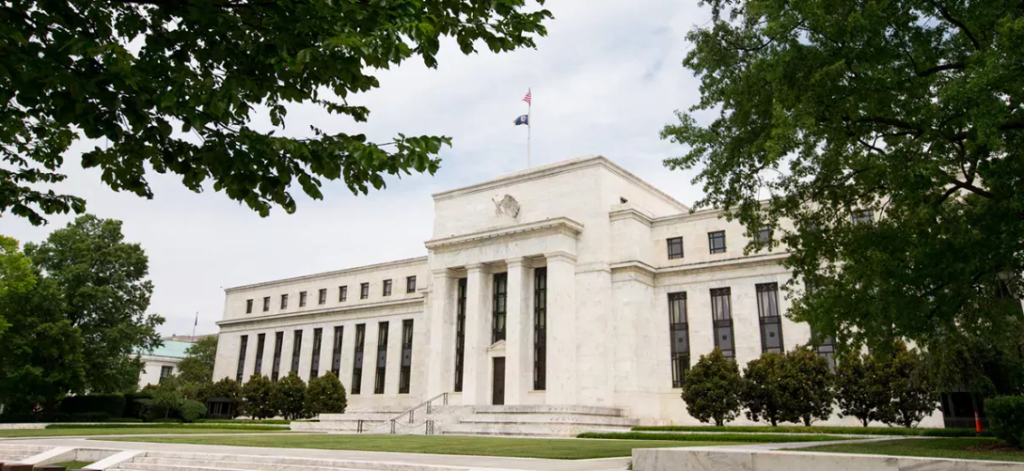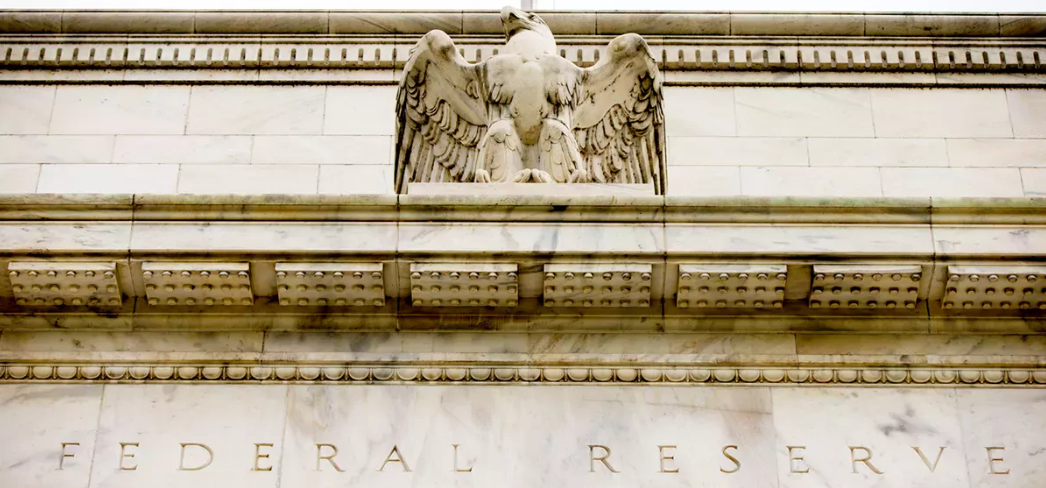
François Christen
Chief Economist
La vigueur du marché du travail américain apporte de la crédibilité à la posture austère de Jerome Powell.
Original article published on agefi.com

Facing a complex trade-off between price stability and financial system stability, the Federal Reserve is fighting on two diametrically opposed fronts. The fight against inflation is dictating a restrictive course that is proving harmful to a financial system accustomed to abundant liquidity and, in some cases, ill-prepared to deal with the rebound in interest rates.
In line with expectations, the FOMC raised its key interest rate on Wednesday by a quarter of a percent to a range between 4.75% and 5%. The official statement did not give much space to the US banking system, which was described as “sound and resilient”, while no mention was made of the instability in the global economy. The central bank does point out, however, that recent developments will likely mean tighter credit conditions for households and businesses and could therefore hamper activity, hiring and inflation.
The quarterly projections unveiled by the FOMC still incorporate an interest rate hike to a range of 5% to 5.25%, followed by a reduction to a range of 4% to 4.25% at the end of 2024. The Federal Reserve thus persists in denying the prospect of a reversal in 2023, out of step with investors who expect interest rates to be lowered to around 4% by December. Between these two trajectories, the central bank could take an intermediate path depending on the uncertain evolution of activity, inflation and the systemic risks still hanging over the financial system.
The current context is strongly in favor of stopping the cycle of interest rate hikes, but the persistence of underlying inflation is not compatible with the easing that investors are hoping for and which is reflected in the shape of the dollar yield curve. In this turbulent environment, government bonds exhibit rich valuations, mainly supported by the fear of a worsening of the banking crisis. Tactically, this is an inappropriate time to pile into Treasuries except to guard against the worst-case scenario which, as everyone knows, is never certain.
In Europe, the Bank of England also raised its base interest rate by a quarter of a percent to 4.25% as inflation rose to 10.4% in February (6.2% excluding energy and food). The Swiss National Bank raised its key interest rate by half a percent to 1.5%, a few days after granting massive support to Credit Suisse and then to its buyer UBS. Like the Fed, the SNB is maintaining a restrictive course for the economy while being very generous with a banking system placed under close watch.
Despite persistent nervousness and a new episode of “stress” hitting European banks and in particular Deutsche Bank (which has nevertheless been profitable again for several years), the past week has seen a slight upturn in yields in Europe and a timid decline in credit risk spreads. Macroeconomic indicators, overshadowed by the crisis of confidence triggered by the collapse of SVB and then Credit Suisse, are generally reassuring: the PMIs unveiled by S&P Global have generally recovered in the USA and Europe, as has the IFO index, which reveals an improvement in the business climate in Germany. These cyclical developments suggest that we should not panic despite the significant events of the past three weeks.










